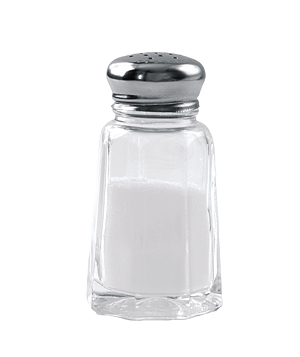Holepunch said:
I know a lot of people in here are making fun of the slippery slope argument, about how insignificant this measure is. But wasn't this what the slippery slope argument lead to? When they start messing with what you can and cannot eat? It's not if the slippery slope is real, this is the slippery slope in mid-effect.
I'm not sure I'm concerned about the government controlling what people eat.
I'm more concerned with the following scenario regarding the impact on public health and scientific progress:
1. Government gives dietary recommendations based on partial science. It sees some evidence that a certain dietary substance increases the risk of mortality (salt, dietary fat), and rationalizes that it must do something in terms of policy to save lives now.
2. After the government gives the recommendation, scientific research funding is focused on the assumption that the dietary substance regulated is bad. A lot of the funding comes from the government. Without first ensuring that the original assumption made in #1 is in fact true, the progress of science is crippled.
It would be like if CERN in Europe didn't exist, and we developed a field of physics based on the wrong assumption as to whether or not the Higgs Boson particle exists.
3. Over time, say some funding does accumulate data for an alternative hypothesis that explains both the negatives of salt intake under certain circumstances, but shows a deeper root cause and that salt deficiencies cause other health problems. The government cannot suddenly say that their dietary advice is wrong, repeal the regulations, and convince the public that is sold on salt being the problem otherwise. Instead they must ease into it, while hundreds of thousands of people are either killed or have a significantly reduced quality of life.
This happened with the lipid hypothesis in 1977 with the food pyramid. First all fats were bad. Then mono-unsaturated were good. Then poly-unsaturated, but not omega 6. Then trans-fats were confirmed to increase the odds of heart disease. Soon saturated fats will be recognized as neutral to HDL:LDL as data is redeeming it.
But those lost decades to dietary science could have been saved if we simply followed the scientific method, adjusted/rejected the lipid hypothesis based on empirical controlled data. Instead this premature public policy has probably contributed to obesity, heart disease, diabetes, and we're just now starting to get the data to show it.


